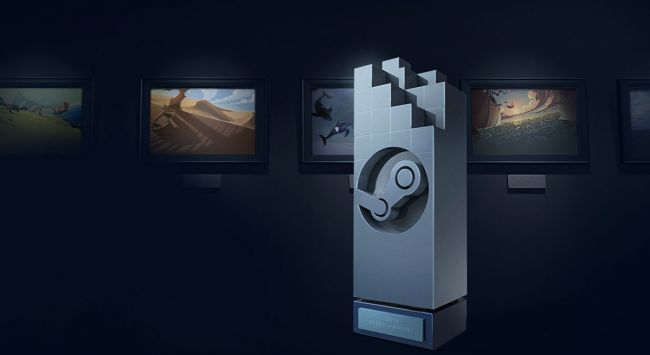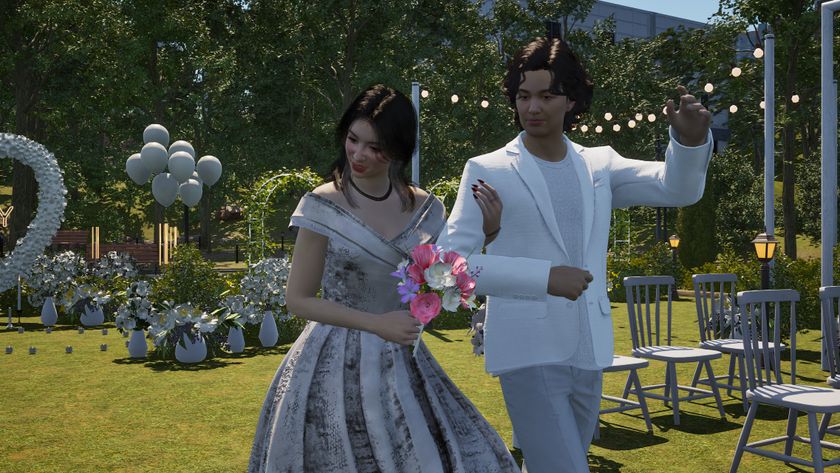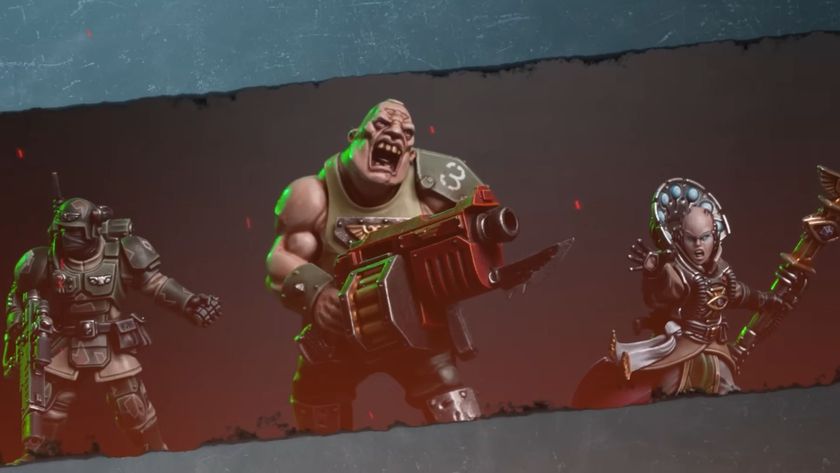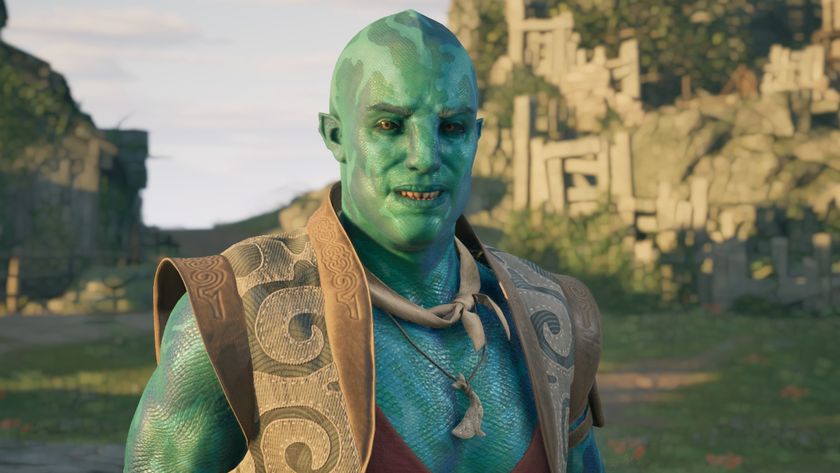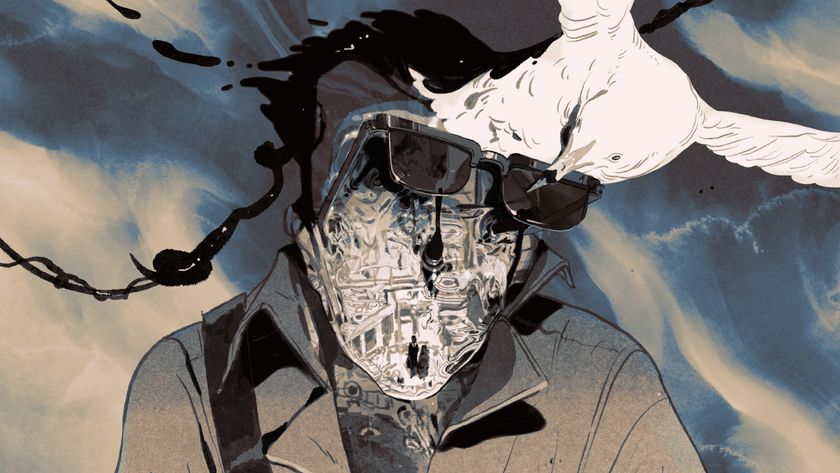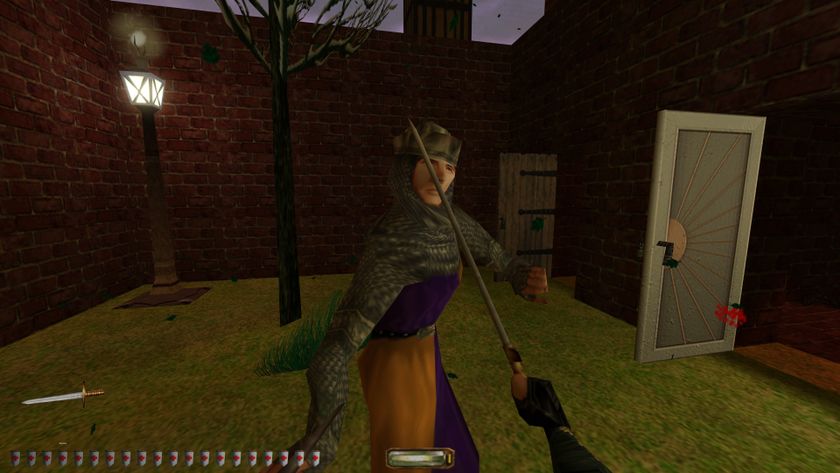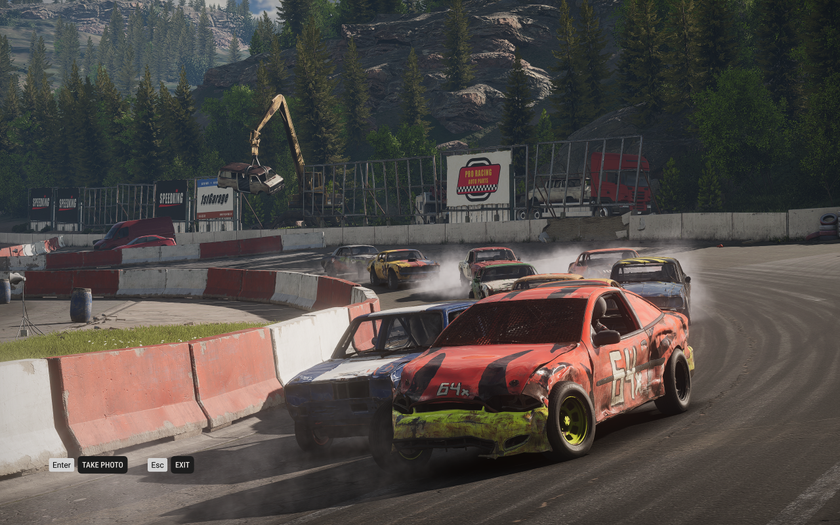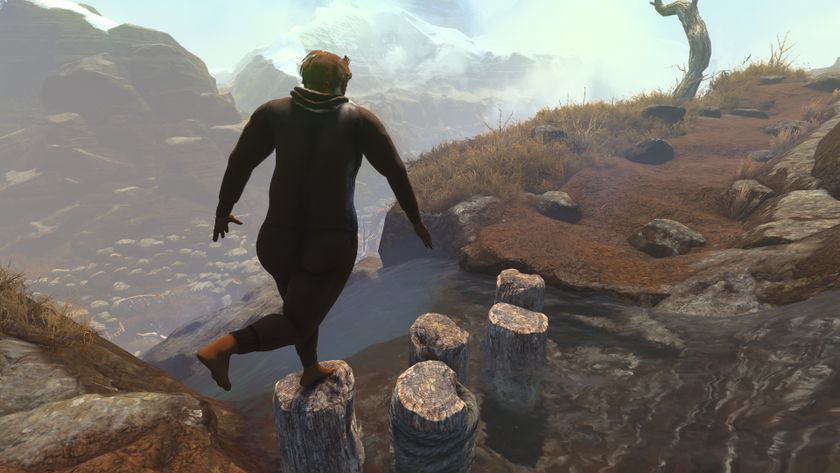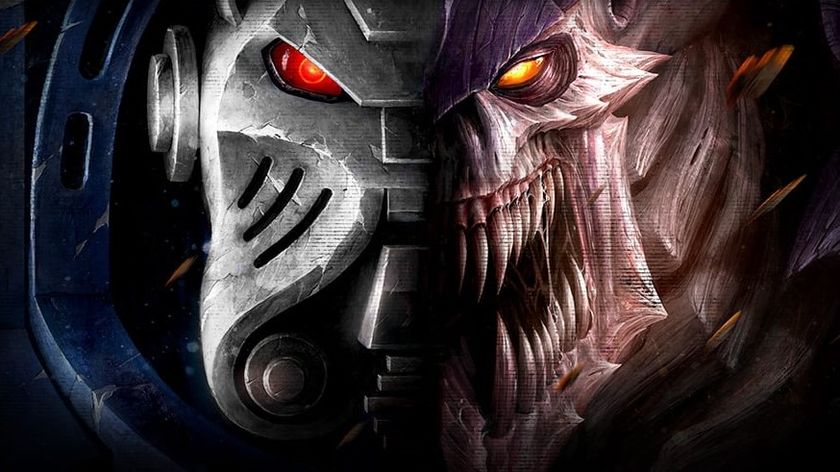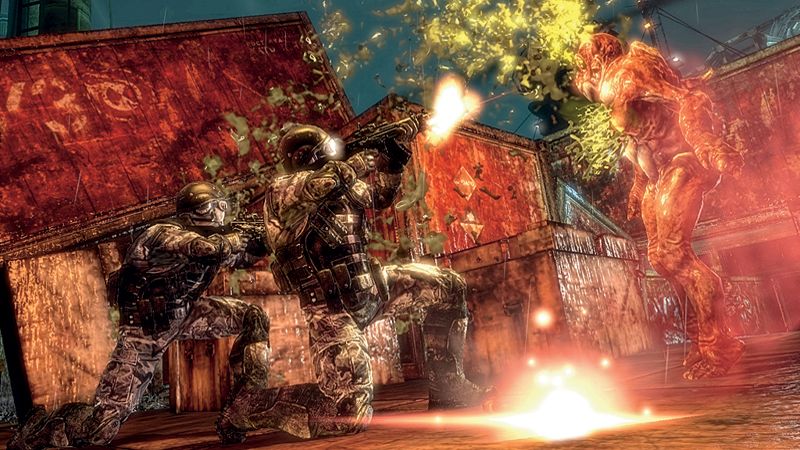
This series originally ran in PC Gamer UK magazine as a column called They're Back, in which Jon Blyth took a sideways look at ageing games and re-releases before meting out judgement.
This week's edition was first published in the Christmas edition of 2011, which is why it talks a lot about physical re-releases and bundles and other things that don't exist any more.
Singularity gets a second crack at the sales whip
I’m probably preaching to the choir, here. You’re all educated men, with sophisticated frilly collars and fragrant, powdered necks. So if I were to sidle up to you in the queue at the post office and suggest that Raven’s time-flipping shooter was rudely overlooked by Activision’s marketing robots, you’d have every right to shuffle your bosom with an impatient “well, dur.”
Singularity is an odd smash of influences. At times it’s like someone saw BioShock, and thought “you know what’d make this game great? If it was on dry land.” At other times, it’s Timeshift, before slipping briefly into Prey. And there’s a section, walking through a school and discovering the experiments that went on, that is so close to being FEAR 2 that you expect Alma to slither in and start sexpesting you.
But crucially, Singularity does do its own thing. Element 99 is the MacGuffin, a substance discovered by Russian scientists that enables fannying about with time. You slip into the 1950s, and being a heroic sort, save a man’s life. Returning to your own time, it turns out that he was pretty much king of the arseholes, and your new timeline is considerably less American.
Your best friend is a time manipulation glove. It can identify objects that’ve been exposed to Element 99, and flip them between their 1955 and modern states. This is where most of the puzzles come in—ageing and restoring items to suit your purpose. Some of the puzzles even have that snick of “what if I...” satisfaction about them, which is rare enough to be a precious commodity—but this is no Portal.
The most charming, bewildering thing about Singularity is the sheer number of needless miniature interactions. Of course, there are diaries left strewn around, and propaganda films you can watch by tapping E on a projector. But you can also tap E on telephones, and you’re rewarded with a ringtone. There’s even a picture you can straighten. Whose idea of interactivity was this? Who thought I wouldn’t buy into the realness of a deserted laboratory if the telephones didn’t ring?
The biggest gaming news, reviews and hardware deals
Keep up to date with the most important stories and the best deals, as picked by the PC Gamer team.

There’s also some great eye-rolling dialogue, like the moment when no one can work out how something might have escaped from the teleportation lab. I mean, the doors were closed. How would you escape from a teleportation lab, without opening the doors? If only there was some kind of clue.
Singularity’s faults are charming, its influences are aped with sincerity and intelligence, and the multiplayer is an unexpected match of man vs monsters. I don’t want to oversell the game—part of its charm is that it arrived with zero hype and low expectations. But come at it as the plucky underdog that Activision stupidly buried, and you’ll be fully equipped to enjoy a game that doesn’t deserve to be forgotten.
Jon's score: 81
Explosive arcade racing game Blur bears repeating
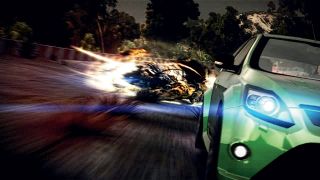
Oh, hello! You wait a year for one under-performing Activision title to get a budget re-release, then suddenly you’re up your elbows in unjustly neglected nearly-great titles.
Along with Split/Second, Blur was part of what felt at the time like a failed arcade racing renaissance. But while Split/Second focused on ‘shit going on’, Blur was more squarely trained on ‘shooting shit up’. A fusion of Project Gotham and Mario Kart, if you absolutely must. Weapon drops litter the tracks, and while there’s nothing as unfair or game- stealing as a blue shell, the violence—and the fans you earn through it—put the game’s emphasis firmly in the big dumb fun quadrant.
The injustice of Blur’s failure grows ever crueller. Singularity developers Raven Software are still alive, if producing DLC for Call of Duty is truly living. Bizarre Creations only survived the commercial beating of Blur to make a dizzy, disorientated Bond game before exploding into independents. And if you’re happy comparing apple guns to orange cars, Blur is the better game, with Bizarre’s risk, reward, difficulty and progression entertaining the simpleton and testing the expert. And I know this, because I have asked an expert.
So, this month: let’s put right old wrongs, and send £10 apologies to the past in the hope that it will work like Back To The Future or Doctor Who or something, and the compound interest our past-pounds accrue will enrich our present. We’re living the wrong timeline, people, and the only way we can save the world is by playing some games.
Jon's score: 84
Mystery Legends: Phantom of the Opera

You know what I like? Dragging my pupils around a jpeg. And I’m not the only one. By some metric I’m not willing to research—inanity to profit ratio is a good guess, though—the hidden object genre must be record breaking. “I’m looking for marzipan in a cloakroom” has to rank high in the top five excuses that don’t justify anything. The problem is, while I hate these games in theory, when it comes to actually playing them, my tongue gently slides over my lower teeth, and I enter a state of eye- sweeping placidity.
Emotions melt away, pain and hope lost as I hunt for a canoe paddle in the rafters of an opera house. I can see it now. This is a good game. Finding things. It’s good to do.
Jon's score: 60
Pod Gold
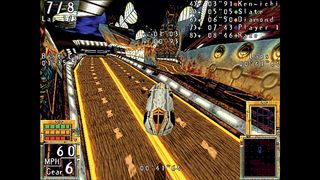
This feels wrong. Take a racing game from 1997—a game that was notable solely for being a technical showcase. Then throw it, naked and embarrassed, 14 years into the future. “Where I come from, people called me beautiful,” Pod whimpers, cowering from the glare of the bloom lighting. “I didn’t have to be complicated, deep or in any way fun to be with. It was enough that I was pretty.”
Playing it today feels like bullying, like forcing a pensioner to dance. Pod has some nice ideas: you can allocate the specs of your car as you see fit. If you want all grip and no speed, go for it. But the basic process of ‘going forwards’ is such a tedious ballache that you’d be mad not to play Blur instead.
Jon's score: 48
Patrician 4

Sometimes the best way to damn a game is to quote the people who liked it. “Enhanced with a drag and drop interface,” says Metacritics highest-scoring result, referring to the “once-great German subgenre of business simulation” to which Patrician IV belongs.
Hold on—it gets better. “It’s easy to get bored by this game,” declares the second highest score. “Don’t expect to be thrilled,” says the next, followed by “In every game, I start to wonder why I am still playing.” You get the drift: business, numbers, sliders. For fans of the once-great genre, there are other games out there. So why not go and buy one of those, instead. Give Patrician a gentle, appreciative snub.
Jon's score: 53
